Dwaejigogi Kimchi Jigae
Spicy kimchi pork stew
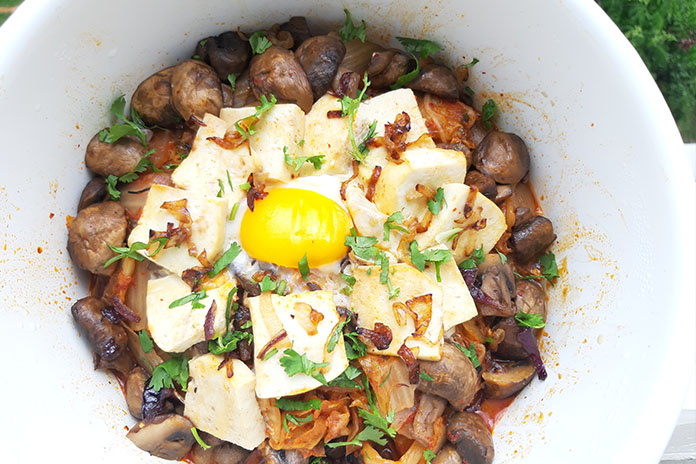
Kimchi, a traditional Korean dish of pickled vegetable, is ideal not only as a side dish but takes on new flavour dimensions when cooked in a stew. Possessing a spicy edge, kimchi’s predominant tangy, sour accents serve as the perfect counterfoil to cut through the greasiness of fatty pork. Wash it down with silky smooth Kuehiji sake and let the liquid glide down your throat while chowing down on kimchi jigae.
Total Time: 1½ hours
Difficulty: 2/5
Cost: S$30.00
Serves: 4-6 persons
A: Oil, Aromatics
1 teaspoon olive oil
1 clove garlic, peeled and halved
1 large white onion, peeled and cut into eights
B: Stew Ingredients
700g pork belly, skin on, cut into large chunks
500g sweet, spicy kimchi, sliced or whole
400g Swiss brown/white button mushrooms, quartered
C: Optional Ingredients
300g semi-firm tofu, diced
200g bean sprouts
1 fresh egg
D: Seasoning
1 generous teaspoonful Japanese miso paste, white or red
½ teaspoon salt
1 teaspoon sugar to taste
E: Garnish
Fresh dill or parsley, coarsely chopped
1 tablespoon fried shallots
DIRECTIONS:
1. Heat up olive oil in a skillet over medium heat. Toss in garlic and onion. Cook until they turn brown. Transfer to casserole or stewing pot.

Note: White or yellow onion is sweeter and less spicy than its purple counterpart.
2. Using the same skillet, turn up stove heat. Spread a layer of pork belly on it. Grill on all sides until brown but not until fully cooked.
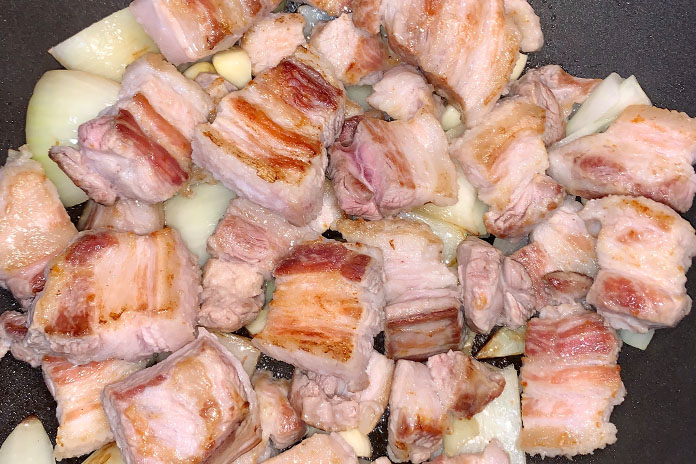
Transfer pork to stewing pot. Note: Pork needs a good stewing for 45 minutes, so do not fully cook while grilling.
3. Spread kimchi on top of pork evenly – this enables meat to absorb vinegar and chilli from the kimchi and take on its flavours.
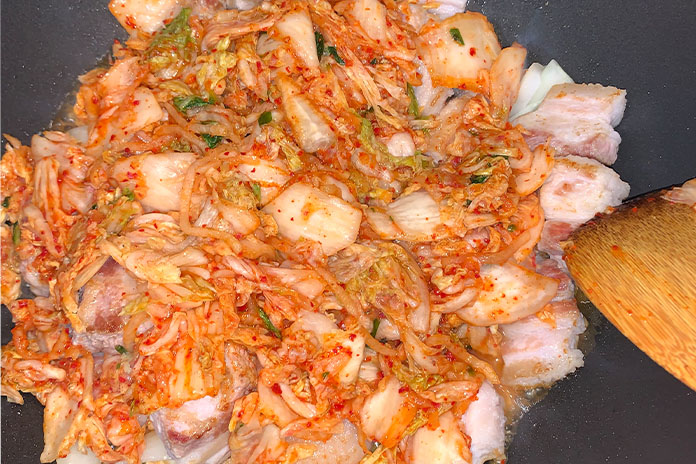
4. Bring mixture to a quick boil. Reduce heat and simmer for 45 minutes.
5. While waiting for stew to boil, heat up the same skillet; sauté mushrooms in pork drippings until mushrooms shrink to half their size – this expels moisture from mushrooms and the stew will not be too watery. Note: As both white button and Swiss brown mushrooms are similar, apart from their colour, you can use a combination of both fungi.
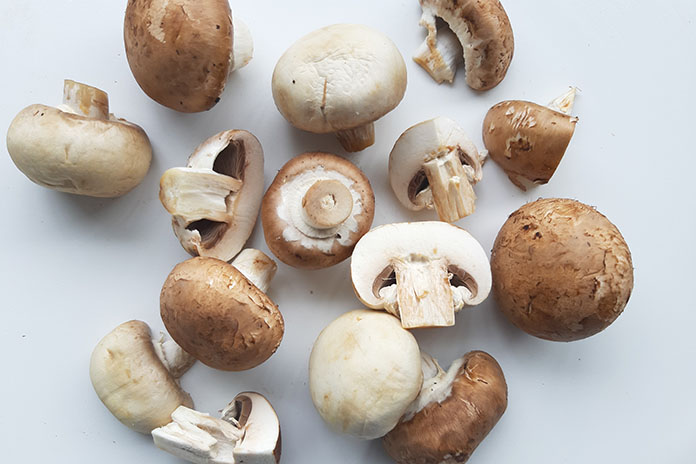
Alternatively, transfer mushrooms directly to stewing pot. Add tofu and beansprouts if desired.
6. Add doenjang (or miso) paste for an umami boost. Stir it into stew until it is incorporated.
7. Turn off heat. Leave pot to cool down on the stove, approximately 5 minutes. If you like, crack an egg on top of the stew.
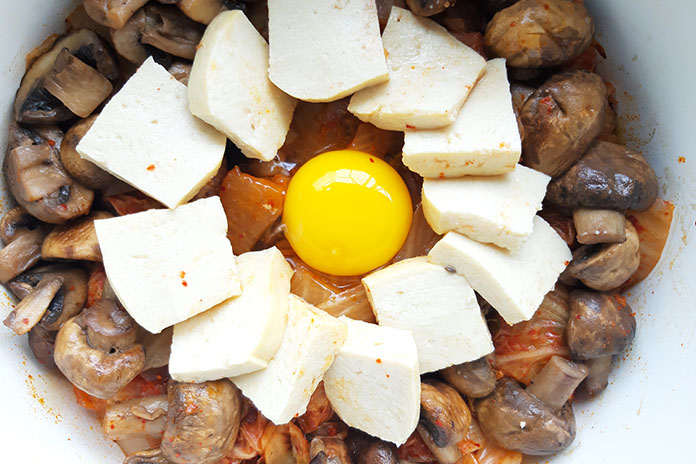
8. Garnish with E ingredients before serving. Enjoy stew on its own or with steamed rice. A glass of great soju would do nicely to geonbae with your dining companion.
TIP: Chilled spirits make a great accompaniment! It is a good counterfoil to the mild spiciness of kimchi. Select your soju or sake from the Spirit Guide’s recommendations in Never Forsake A Great Sake!
BUYING TIP: Sweet and spicy version kimchi is suitable for this dish.
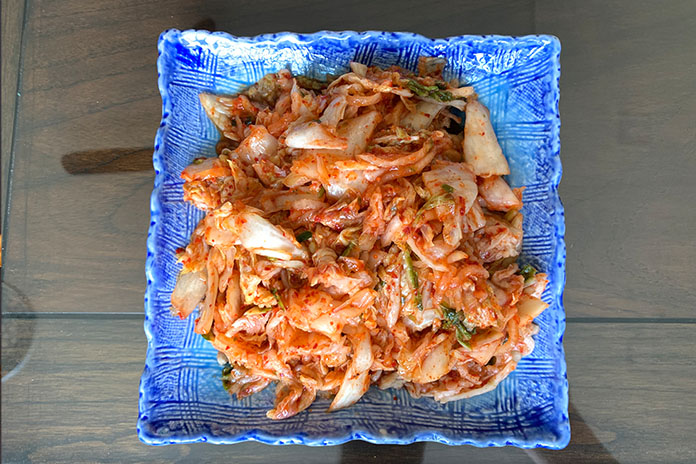
TECHNIQUE: A great tasting dish is all about building flavours throughout the cooking process. Onion and garlic sweeten the stew as it softens and soaks up porcine flavours from the pork. The meat, in turn, absorbs spicy-tangy accents from the kimchi. Mushrooms are sponges, drawing in flavours from accompanying ingredients. Doenjang (or miso) paste is the star ingredient that binds everything together into a harmonious symphony of flavours.Photos: John Bo
Click on storm-asia.com/category/food for more recipes and reviews of restaurants.
If you have a simple recipe to share, please email it whipitup@storm.sg.
You may like to try these recipes:




















